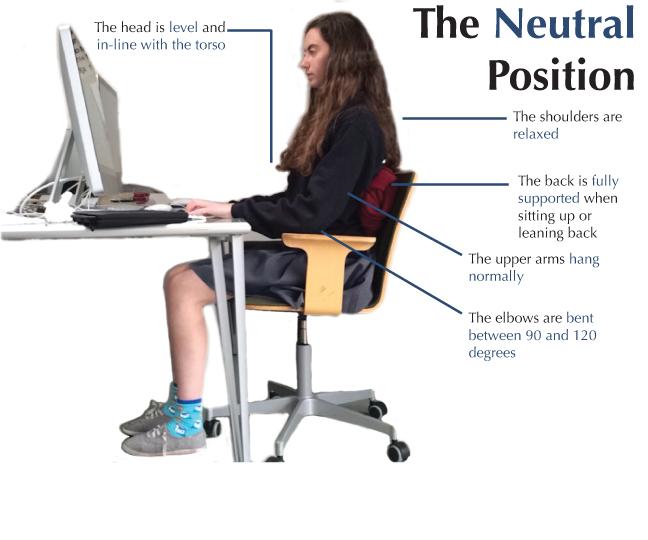Poor seating postures can lead to long-term damages.
April 30, 2015
While finals may cause students to experience mental strain, extended study sessions and poor posture can lead to physical aches that cause long-term damage.
Long periods of studying without breaks creates a lack of oxygen within the muscles, making them too tight and causing an increase in lactic acid, leading to muscle inflammation and causing pain, according to Sally Longyear, Ergonomics Program Manager for Stanford Research Institute International.
“If you do anything for a long period of time that causes stress to not just your physical body — but also emotionally — you start to fatigue,” Longyear, said.
Longyear recommends taking short, frequent breaks while studying.
“The best thing to do is to think ahead,” Longyear said. “At least once an hour, just stop, get up and move around. Even just for a minute. That helps your physical body and it helps mentally, because the longer students sit the more tired they get.”
Maryann Rainey, a San Francisco Unified School District nurse, recommends students exercise vigorously, increasing the heart rate for 30 minutes or more every day.
“When people are stressed and anxious, sometimes their self-care strategies go to the wayside,” Rainey said. “There is a strong connection between being physically active and being a better student.”
Teens who participate in regular physical activity often exhibit improved concentration and attentiveness. Storage, retrieval and processing of information is also improved, according to the Centers for Disease Control and Prevention.
Children and teens should participate in at least 60 minutes of physical activity per day, according to the U.S. Department of Health and Human Services.
“It comes to the point sometimes where my brain is thinking a lot and taking a break is really beneficial,” sophomore Bella Kearney said. “It refreshes my brain into a new way of thinking.”
Taking breaks may relieve fatigue, however pain may still be present due to incorrect posture while using electronic devices or using them in awkward positions.
Users should keep their bodies in a neutral position, where the head is level and aligned with the torso with a fully supported back, to avoid causing tension in the neck and pressure on the nerves. Placing a laptop on one’s lap or using it while reclining may cause tension in the neck, placing pressure on the nerves. A pinched nerve may cause numbness and muscle weakness in the affected area, according to Longyear.
Longyear suggests students studying in the most neutral position possible in order to remedy this problem.
The neutral position consists of a level head, relaxed shoulders and a fully supported back when sitting up or leaning back. The upper arms hang normally and the elbows remain close to the body.
The hands, wrists and forearms are straight with the thighs and hips being supported. The knees are at about the same height as the hips with the feet fully supported by the floor, according to the Occupational Safety and Health Administration.
Early warning signs of muscle strain or skeletal damage include aches, tenderness, soreness or stiffness in the affected muscle.
Anti-inflammatories such as ibuprofen can temporarily relieve muscle pain, but they mask pain rather than address the causes, and overuse can cause gastric bleeding, kidney damage and other related issues, according to the National Center for Biotechnology Information.
Sixty-eight and a half percent of students tend to feel aches, tenderness, or soreness while studying, according to a Broadview survey in which 42 percent of students responded.
“Most people work through the discomfort because it is very subtle and it goes away, but it always comes back,” Longyear said. “Those warning signs are very important, you really want to pay attention to what your body is telling you.”
Longyear says many people, including students, are unaware of how detrimental ignoring the warning signs can be.
“This leads to a disease, not an injury, ” Longyear said. “There is no cure for it. Once you damage your nerves, they are always going to be damaged. Be proactive and be preventive.”










